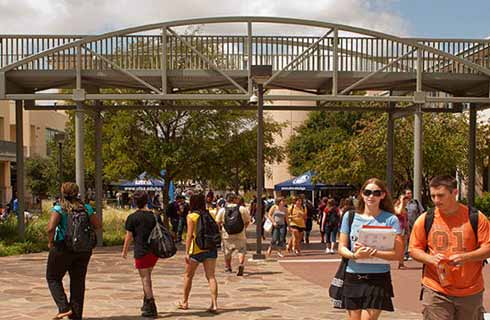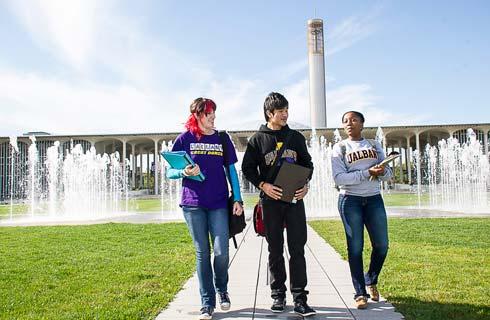文学硕士和考古博物馆物资保护
MA Conservation of Archaeological and Museum Objects (Diss)

学历文凭
Masters Degree (Taught)

专业院系
Archaeology

开学时间

课程时长

课程学费

国际学生入学条件
IDP—雅思考试联合主办方

雅思考试总分
7.0
了解更多
雅思考试指南
- 雅思总分:7
- 托福网考总分:102
- 托福笔试总分:160
- 其他语言考试:Pearson Academic PTE - 68 (with no less than 62 in each Communicative Skill)
CRICOS代码:
申请截止日期: 请与IDP顾问联系以获取详细信息。
课程简介
Combining specialist conservation skills with teaching in analysis and research. This practice-based MSc includes a year-long placement, allowing you to put your knowledge into practice.<br>The MSc in Conservation of Archaeological and Museum Objects (Professional Practice) combines specialist conservation skills with theoretical knowledge and a year-long placement. You will develop the skills to research, analyse, preserve and care for historic and archaeological objects, and safeguard them for future generations.<br><br>This practical course, which is studied over two years full time or three years part time, is designed for those interested in a career as a conservator of historical objects, or in the fields of artefact research or collections care. While we draw students from a wide range of academic backgrounds, they share a number of essential traits, those of manual dexterity, a knowledge of chemistry and the desire and commitment to work with museum objects.<br><br>Taught by qualified conservators, you will learn about conservation skills, artefact studies, methods of conservation, and how to care for collections. One day you might be looking into the ethics of conservation, the next you could be learning about chemical compositions used in the preservation of different materials.<br><br>You will spend the final year on placement. The placement year is normally spent developing your skills in a conservation laboratory at a major museum. Previous industrial partners have included the Museum of London, the National Museum of Wales and the York Archaeological Trust.<br><br>As a conservation student you will have access to many of the Department’s state-of-the-art facilities, these include a photographic studio, internationally renowned research laboratories in DNA, conservation, isotope analysis, and environmental archaeology, luminescence dating as well as unique collections of artefacts.
相关申请
 预科
预科 奖学金
奖学金 实习机会
实习机会 在校学习
在校学习 跨境学习
跨境学习 校园授课-线上开始
校园授课-线上开始 在线/远程学习
在线/远程学习
学校排名

世界排名114
数据源:泰晤士高等教育世界大学排名
关于杜伦大学

杜伦大学创建于1832年,是英国历史最悠久的大学之一。杜伦大学建于中世纪世界遗产地旁,有着悠久的历史和现代价值观,是一座备受推崇并拥有前瞻性思维的学府。如今,来自世界各地的18000多名学生在达勒姆就读。杜伦大学有28个系,开设有200多门本科和研究生课程。该校很多教师都处于各自领域的最前沿。教职人员利用出色的研究和学科知识为所有学生提供优质的教学。目前,杜伦大学有17个学科在全球大学中名列前100位,其中九个学科名列前50位。除了在学术上的卓越成就,该校还努力为学生提供支持,帮助他们在毕业后获得有意义的工作。其毕业生就业能力目前在世界上排名第88位。该校的就业与创业中心致力于培养学生的专业技能,并提供商业人脉和工作机会。杜伦大学目前在2020年《QS世界大学排名》中名列第78位,稳稳跻身全球大学百强之列。该校为教职人员和学生创造了一个热情友好的多元化社交环境,并因此而倍感自豪。目前,杜伦大学28%的在校生为非英国本土学生。大学社区处在独一无二的达勒姆求学体验的核心位置,达勒姆的每个社区均是多元化、多学科的社区,由来自不同背景和文化的学者、学生和工作人员组成。有了这些社区,加上该校杰出的支持体系,学生们一定会有宾至如归之感,并可参与大量精彩的课题。
本校相关课程

博士神学与宗教
学历文凭
Ph.D.
开学日期
课程费用总额


MLitt神学与宗教
学历文凭
Masters Degree (Taught)
开学日期
课程费用总额


博士学位论文博士学位
学历文凭
Ph.D.
开学日期
课程费用总额


理学硕士心理学研究
学历文凭
Masters Degree (Research)
开学日期
课程费用总额


研究心理学硕士
学历文凭
Masters Degree (Research)
开学日期
课程费用总额


博士哲学
学历文凭
Ph.D.
开学日期
课程费用总额

其他相关课程

国家土著研究中心哲学博士
 澳大利亚国立大学
澳大利亚国立大学学历文凭
Ph.D.
开学日期
课程费用总额


社会科学学士(荣誉学位)
 纽卡斯尔大学
纽卡斯尔大学学历文凭
Bachelor Degree with Honours
开学日期
课程费用总额


哲学博士(人文,艺术和社会科学)
 斯威本科技大学
斯威本科技大学泰晤士高等教育世界大学排名:201
学历文凭
Ph.D.
开学日期
课程费用总额


国际发展研究生文凭
 乐卓博大学
乐卓博大学泰晤士高等教育世界大学排名:251
学历文凭
Graduate Diploma
开学日期
课程费用总额


土著哲学博士
 南十字星大学
南十字星大学泰晤士高等教育世界大学排名:501
学历文凭
Ph.D.
开学日期
课程费用总额


国际贸易与发展硕士。
 阿德莱德大学
阿德莱德大学学历文凭
Masters Degree (Coursework)
开学日期
课程费用总额





















 英国
英国




